We might soon see the end of the traditional 5-day 9-to-5 schedule, as Microsoft founder Bill Gates predicts that advancements in AI could replace humans enough to allow for a 2-day work week.
Very few things are as entrenched in modern day society as the standard working week, as millions of people across the country follow the exact same schedule five days out of seven, every single week of the year.
While there are plenty of jobs which lean towards the extreme end of things, including Elon Musk’s new government department which has employees working around 120 hours a week, health experts have outlined the dangers of subjecting your body to hours greater than what’s recommended.
However, an almost utopian 2-day week could be on the horizon for workers thanks to advancements in artificial intelligence if you believe Bill Gates, as the Microsoft founder claims that AI’s ability to do replace humans for ‘most things’ will greatly benefit work-life balance.
As reported by Fortune, Bill Gates revealed during an interview on The Tonight Show Starring Jimmy Fallon that AI will eventually make ‘intelligence’ free to everyone, using doctors and teachers as an example, and would lead to people working far reduced hours.
“It’s kind of profound because it solves all of these specific problems like we don’t have enough doctors or mental health professionals, but it brings with it so much change. What will jobs be like, should we just work 2 or 3 days per week, so I love the way it’ll drive innovation forward but I think it’s a little bit unknown [whether] we will be able to shape it.”
What Gates is largely referring to is the point at which AI would achieve ‘artificial general intelligence’ (AGI), where it would in essence match and potentially even exceed the capabilities of humans.
This will, in his own words, lead to only a handful of jobs surviving the AI revolution, but these will typically be those that we’d want humans to be doing.
“We’ll decide, like baseball – we won’t want to watch computers play baseball – so there will be some things that we reserve for ourselves, but in terms of making things and moving things and growing food, over time, those, will basically be solved problems.”
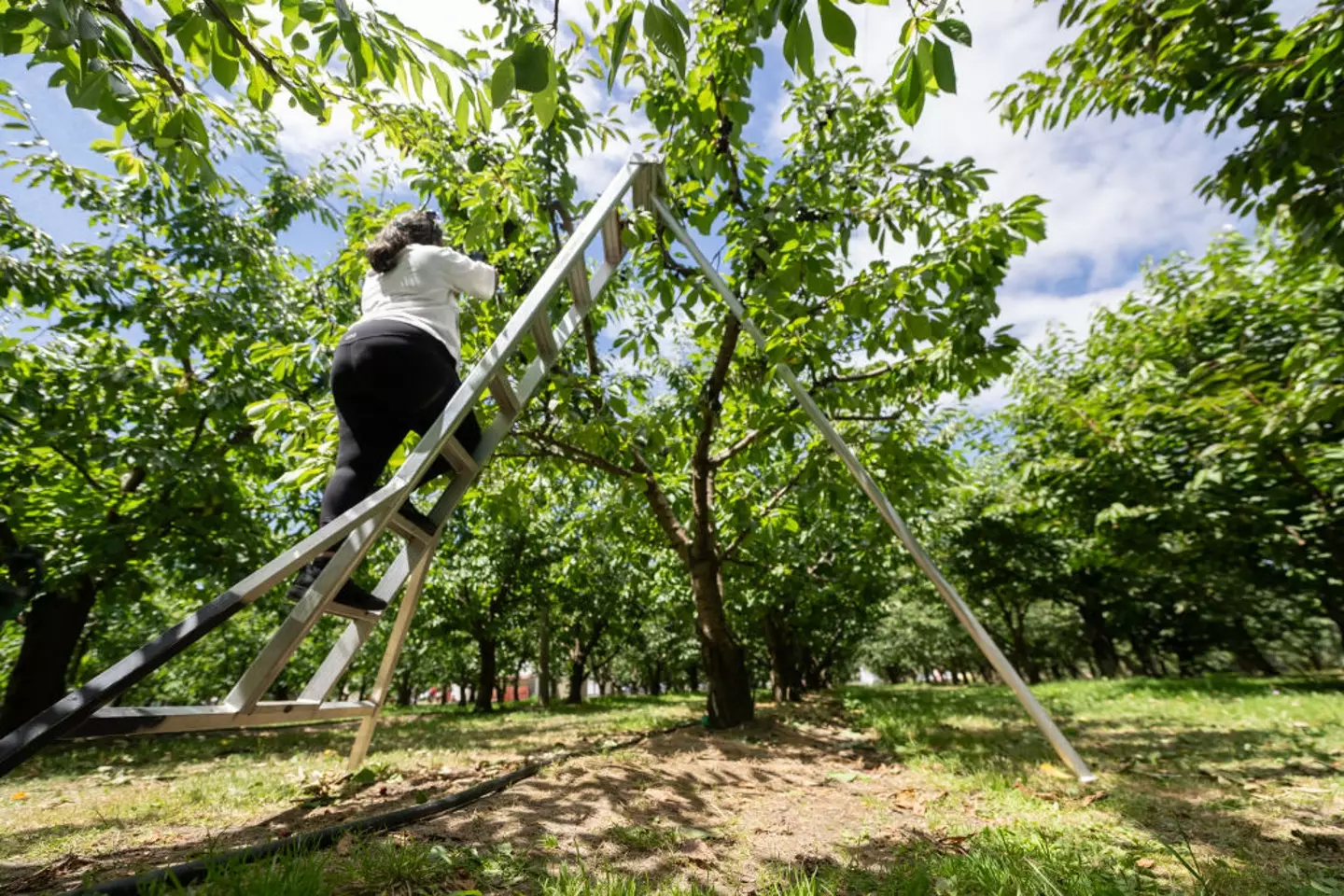

Gates claims that AI will ‘solve’ the ‘problem’ of jobs that involve growing food or making things (Sanka Vidanagama/NurPhoto via Getty Images)
What some might criticize in Gates’ outlook though is what’ll happen to those people who currently do the ‘problems’ that AI will ‘solve’. Geoffrey Hinton, known as the ‘Godfather of AI’, has previously outlined the extreme wealth gap that AI advancements will create, and the future prosperity of society would entirely depend on the ability to support people without the need of jobs.
There’s also the ethical consideration too, which has been raised by one Jeff Bezos-backed CEO, as the efficacy of artificial intelligence is entirely dependant on those in control, and even the Vatican has outlined the dangers that AI could create in left in the wrong hands.
Featured Image Credit: Axelle/Bauer-Griffin / Contributor via Getty
Bill Gates certainly has confidence in the positive impact that future AI developments can bring, as he’s highlighted three major problems in particular that advancements in the tech will be able to solve.
Conversations surrounding artificial intelligence appear to be extremely polarizing, as on one hand you have those embedded within the industry that see it as the biggest tech revolution in decades, whereas on the other there are countless warnings that prophesize the dangers that AI could potentially bring.
ChatGPT creator Sam Altman once compared the inception of his company OpenAI to a ‘Manhattan Project for AI’ which some would call a perfect comparison for reasons that Altman himself might not have considered, and recently one Jeff Bezos-backed CEO warned that the rapid development of AI must be safely controlled by humans.


AI has seen rapid developments in the past few years, yet we could only be at the beginning of what it could achieve (Getty Stock)
Despite having some choice words to say about other key members of the AI industry, Bill Gates has actually argued for the benefits of artificial intelligence, highlighting the ‘fantastic opportunity’ that advancements in the tech could bring, as reported by CNBC Make It.
In particular, Gates has highlighted three major problems across the world that AI could in theory solve within the next decade if things go to plan. He illustrated that AI could provide “breakthrough treatments for deadly diseases, innovative solutions for climate change, and high-quality education for everyone.”
We have already seen hints that AI could be used to create ‘personalized’ vaccines for cancer patients, and it’s ability to potentially provide education are easy to understand – although some might question its viability in finding a climate change solution considering its heavy environmental impact.
“There will be some things we reserve for yourselves,” Gates continues to explain, “but in terms of making things and moving things and growing food, over time those will be basically solved problems.”
He has also outlined the handful of jobs that will be safe from AI-based redundancies no matter what happens, so it might be worth considering those to future proof yourself.


Gates has claimed that AI could solve many of the world’s biggest problems (Todd Owyoung/NBC via Getty Images)
At the core of these advancements though is what’s known as artificial general intelligence, or ‘AGI’ for short. It essentially denotes a point in which AI becomes advanced and intelligent enough to match or exceed the intellect and skillset of humans.
The head of Google’s AI labs has estimated that AGI could be achieved in the next five to ten years, but other major names in the artificial intelligence world have warned that this could dramatically increase the end of humanity. Despite his optimism, Gates has also expressed that caution is an essential part of continued AI development, expoundig in a blog post:
“I’m lucky to have been involved with the PC revolution and the Internet revolution. I’m just as excited about this moment. This new technology can help people everywhere improve their lives.
“At the same time, the world needs to establish the rules of the road so that any downsides of artificial intelligence are far outweighed by its benefits, and so that everyone can enjoy those benefits no matter where they live or how much money they have. The Age of AI is filled with opportunities and responsibilities.”
With arguments that AI will only widen the wealth gap and even create a ‘fertile ground for fascism’ though, some aren’t quite as hopeful for the future as Gates.
Featured Image Credit: NBC / Contributor / Getty
AI is changing the way we work, fast. It’s already handling a lot of our mundane and repetitive tasks, freeing people up to focus on bigger things.
Naturally, however, this shift is making a lot of workers nervous.
One report by revealed that in the ‘worst case scenario,’ eight million UK jobs could be lost to artificial intelligence. Another study found that 54% of banking jobs can be automated using AI. In fact, just last month, Singapore’s major bank DBS announced it may cut around 4,000 job roles over the next three years as AI technology takes over more human tasks. Although, concerns about privacy and security that are non-negotiable in settings like banks are still holding back wider adoption of AI – at least for the time being.
Meanwhile, Microsoft co-founder Bill Gates recently shared his thoughts on the topic.
.jpg)
.jpg)
Bill Gates claims coders, biologists and energy experts are safe from AI takeover / Sean Gallup / Staff / Getty
The tech billionaire predicted that AI would replace humans for most things, but that doesn’t make us powerless. Ultimately, it’s up to us to decide how we use AI and which parts of the work we want to keep doing ourselves, Gates explained.
With that in mind, the philanthropist named three professions he believes are safe from AI takeover. These are coders, biologists and energy experts.
This might sound a bit surprising – almost contradictory – especially as other tech experts are hinting the exact opposite. NVIDIA CEO Jensen Huang recently told young people to think twice before getting into software development, given the current progression of AI, while Salesforce’s CEO Marc Benioff recently said his company is ‘seriously debating’ hiring software engineers in 2025.
Furthermore, OpenAI CEO Sam Altman announced AI would eventually replace software engineers, and so, he suggests that students should ‘master AI tools’ like his generation did with coding.
But Gates believes while AI can now generate code and even pass technical benchmarks (like OpenAI’s o1 reasoning model), human coders are still essential to the process, as per Axios. Human professionals will be needed to identify and correct errors, refine algorithms and support AI’s development, Gates described.
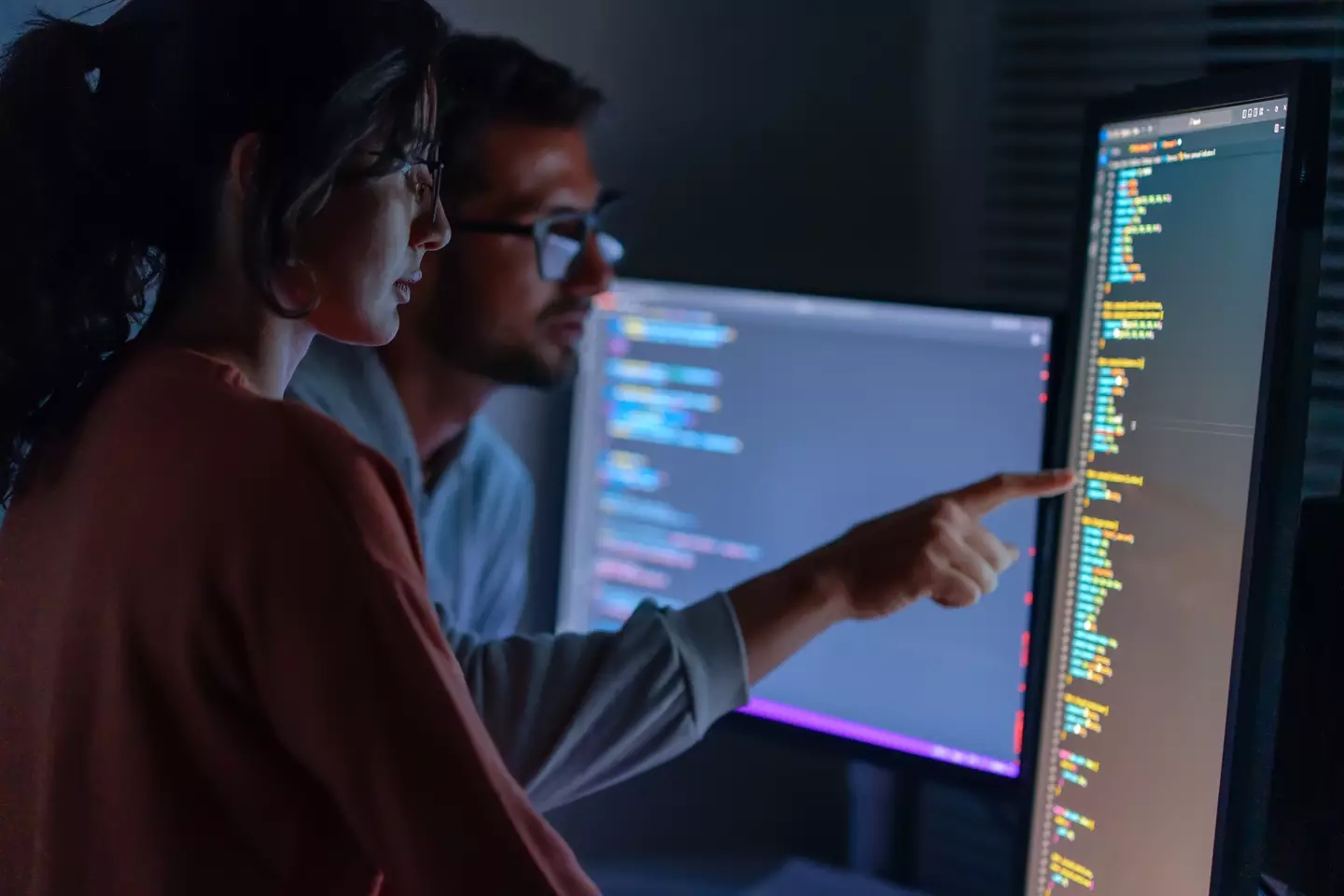

Software coders don’t have to fear a hostile AI takeover just yet / Cravetiger / Getty
Additionally, the 69-year-old claims that biologists are safe in an AI future world.
He argues that AI is great at diagnosing diseases and analysing DNA but reiterates that the technology lacks the creativity needed for biological research and scientific discovery.
Gates also speculated that AI will be a help rather than a hindrance when it comes to achieving global climate goals. But in the meantime, it won’t replace energy experts because the field is too complex to be fully automated.
Elsewhere, Gates observed that despite advances in AI and cleantech, the world will likely miss its 2050 climate targets.
“I worry, in general, that the amount of green electricity that we need for the transition is not going to show up nearly as fast as we need,” he explained. “If you try to map out and say: ‘Let’s get to zero by 2050,’ you’re like: ‘Another 10 or 15 years might be more realistic.’ It’s very hard to see. We’re not going to get to zero by 2050, I don’t think.”
Featured Image Credit: Roy Rochlin / Stringer / Getty
Bill Gates has made a stunning prophecy for which jobs will be taken over by AI in the next decade.
It’s a question a lot of us are asking as the advancements in artificial intelligence continue to make leaps and bounds.
And the tech mogul may have some answers on what we can expect over the next 10 years.
Gates made an appearance on The Tonight Show where he spoke to host Jimmy Fallon about what he believes the future of AI looks like.
While we currently rely on humans in many specialist fields, including doctors and teachers, Gates believes that could all change.
In the future, the Microsoft co-founder has said AI will begin to play a huge role in those industries.
He said: “With AI, over the next decade, that will become free, commonplace – great medical advice, great tutoring.”
Gates also spoke to Harvard University professor and happiness expert Arthur Brooks about AI where he said: “It’s very profound and even a little bit scary – because it’s happening very quickly, and there is no upper bound.”
Speaking to Fallon, Gates remained optimistic about the future, confirming that there are some jobs that he doesn’t see humans ever being replaced by robots, commenting that people most likely don’t want to watch machines playing baseball.
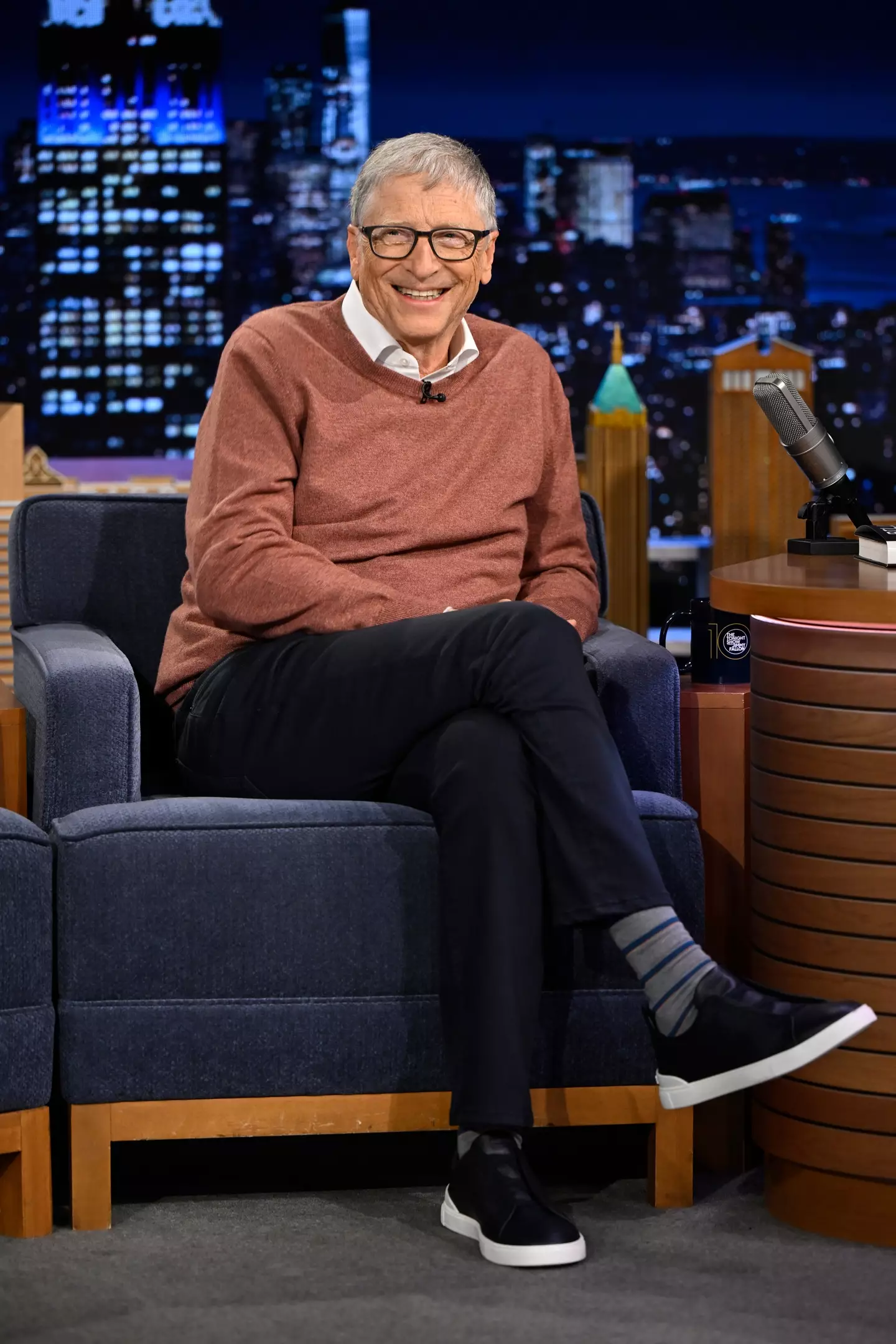

Bill Gates shared his predictions for the future of AI (Todd Owyoung/NBC via Getty Images)
He said: “There will be some things we reserve for ourselves. But in terms of making things and moving things and growing food, over time those will be basically solved problems.”
In a blog post written by Gates back in 2023, he admitted that the development of AI comes with ‘understandable and valid’ concerns.
Although he also shared the way it could help people, adding: “But I think in the next five to 10 years, AI-driven software will finally deliver on the promise of revolutionizing the way people teach and learn. It will know your interests and your learning style so it can tailor content that will keep you engaged.
“It will measure your understanding, notice when you’re losing interest, and understand what kind of motivation you respond to. It will give immediate feedback.”
In his blog, Gates went on to predict: “There will be an explosion of companies working on new uses of AI as well as ways to improve the technology itself. For example, companies are developing new chips that will provide the massive amounts of processing power needed for artificial intelligence.
“Some use optical switches—lasers, essentially—to reduce their energy consumption and lower the manufacturing cost. Ideally, innovative chips will allow you to run an AI on your own device, rather than in the cloud, as you have to do today.”
So, which jobs will be safe from the chopping block? Gates has pointed out three job roles that he doesn’t think can be replaced by AI.
Coders
While AI does have the ability to generate code, it is far from perfect and humans will be needed to monitor it, fix mistakes and bugs as well as design even more advanced systems.
Energy experts
Gates has also suggested that the energy sector could be too complex for AI to handle at this stage.
The oil, nuclear and renewable energy sectors require strategy and too much expertise to have a fully automated industry.
Engineers, researchers, and technicians are expected to still be needed to manage infrastructure, understand industry challenges, and innovate for the future.
Biologists
When it comes to biologists, AI technology lacks the necessary creativity for scientific discovery so experts are likely to just use it for analyzing data and diagnosing diseases.
Gates has admitted he certainly could be wrong but the way this ever-advancing technology is used will likely reshape everyday life in similar ways the industrial revolution and the internet did in the past.
Featured Image Credit: Todd Owyoung/NBC via Getty Images


One mining startup has received major investment from tech giants like Bill Gates and Jeff Bezos, taking its market cap to just under $3,000,000,000 as it aims to rival China in sourcing key materials.
Mining has always been a profitable venture, but with the swift rise of battery-based technology it’s incredibly important – and extremely profitable – to be sourcing certain materials right now.
Currently America exports most of its critical minerals (copper, lithium, nickel, and more) from China, but investment in certain US-based companies could cause a shift in power and save certain companies a lot of money on imports.
Recent years have seen key discoveries of rare-earth mineral deposits worth tens of billions of dollars on US soil, but this particular startup aims to use AI-based technology to unearth further unforeseen hot spots.
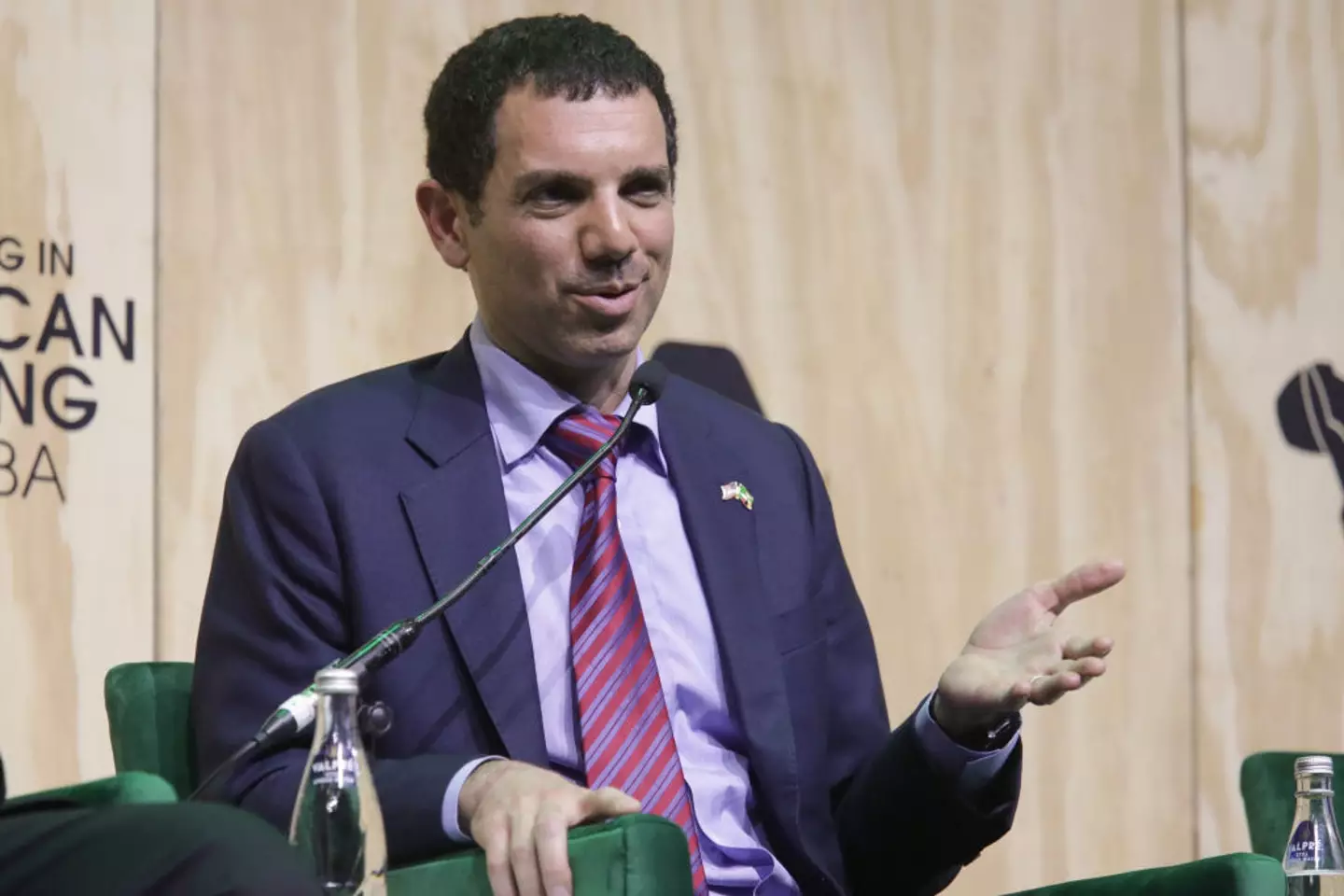

KoBold Metals, co-founded by Josh Goldman, is one of the most valuable startups in the world right now (Dwayne Senior/Bloomsberg via Getty Images)
The company in question is KoBold Metals, and has managed to raise upwards of $537,000,000 in the latest round of funding – with investors including Microsoft’s Bill Gates, Amazon’s Jeff Bezos, and leading mining group BHP.
Recent funding has taken the company towards a market value of $2,960,000,000, as many predict that the developments brought forward by KoBold will have major ramifications on key industries and the economy at large.
This is because it aims to mine materials that are key in the manufacturing of electric car batteries, superconductors, and other vitally important components in emerging tech.
It also aims to use generative AI technology provided by OpenAI to analyze existing data and identify previously undiscovered mineral deposits, which could prove incredibly fruitful to the company’s mining efforts if successfully implemented.
Arguably it also creates a more ‘environmentally friendly’ approach to mining as it’s more precise, leaving fewer negative effects on the surrounding environment.
This has been supported by Carmichael Roberts, who is a managing partner at Breakthrough Energy Ventures, as he claims that the AI sourcing will provide “a more secure, affordable, and clean energy future for all.”
There have been worries from some that president-elect Donald Trump’s alleged stance on electric vehicle policy laid out by the previous government would harm the developments made by companies like KoBold, but they remain confident that their efforts have maintained support.
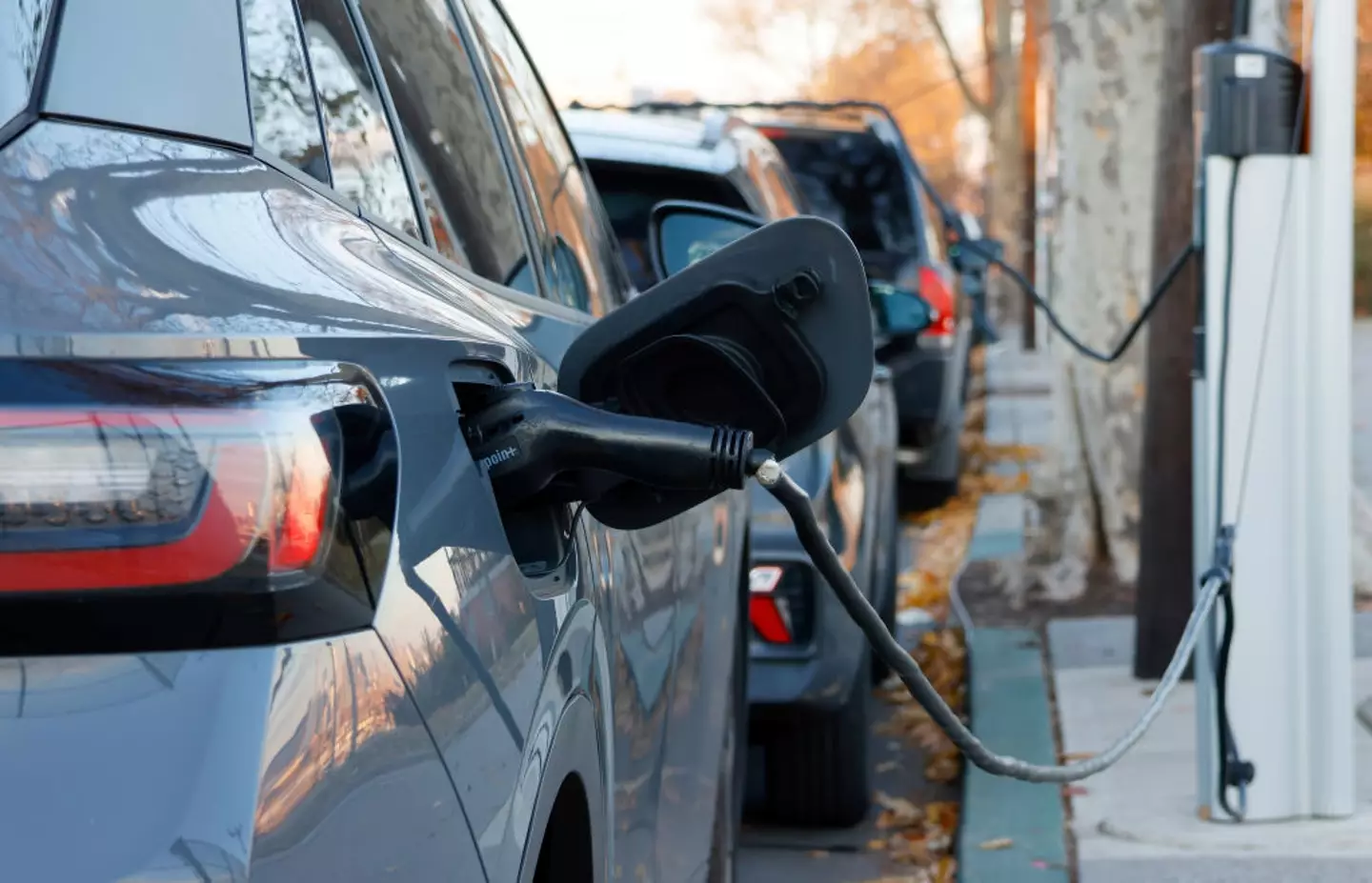

Electric cars would benefit massively from further mining ventures (Gary Hershorn/Getty Images)
KoBold co-found and CEO Kurt House continued to assert confidence that the company’s mission held bipartisan support, and that he has “had plenty of conversations with people who will be associated with the next administration who are very enthusiastic about KoBold’s mission.”



